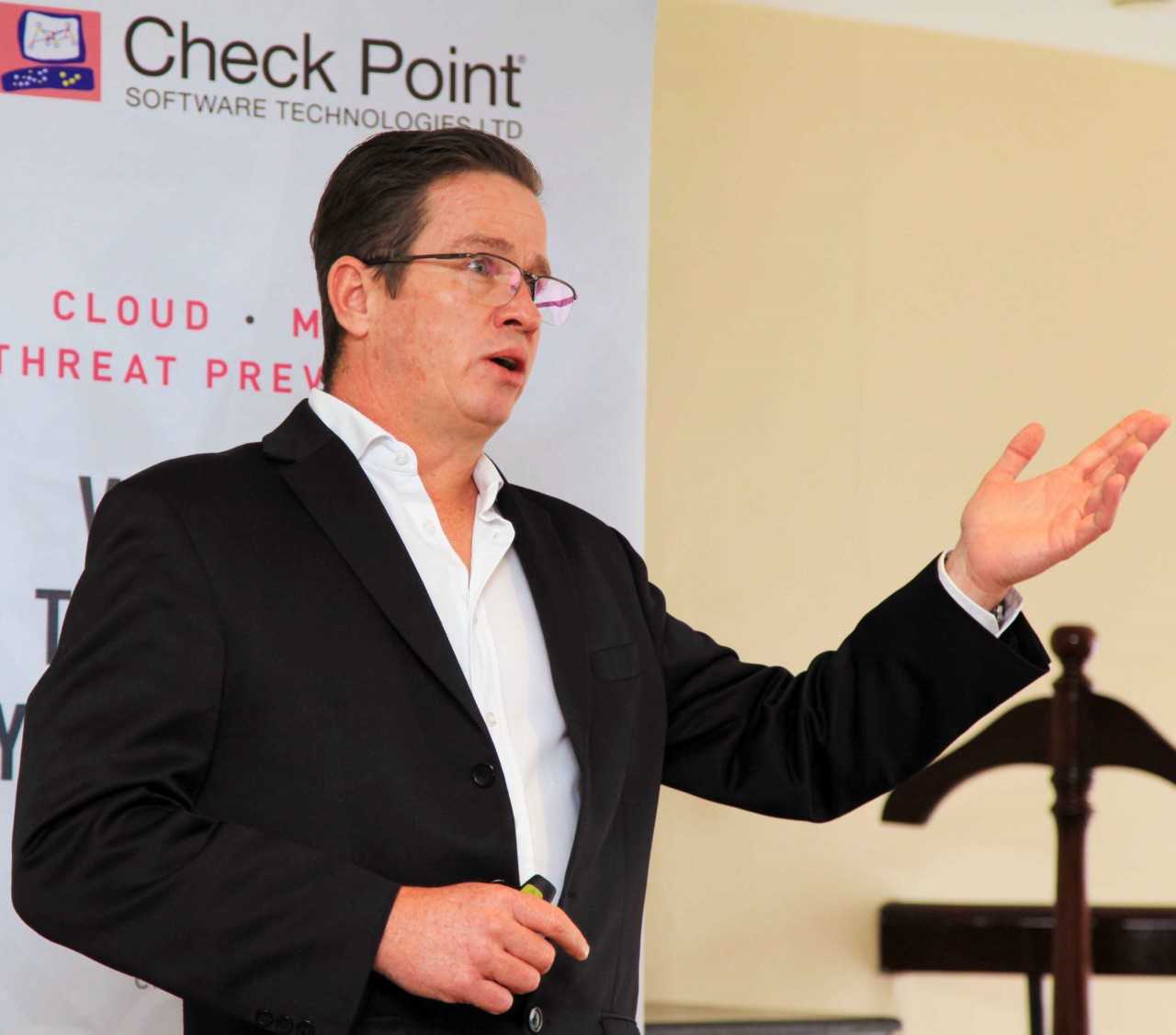advertisement
Unprotected mobile devices risk bringing down enterprises
Business enterprises risk being breached by unprotected mobile devices following their vulnerability as tech items that hackers are lately easily…

Business enterprises risk being breached by unprotected mobile devices following their vulnerability as tech items that hackers are lately easily exploiting and compromising says Ryan McGee Checkpoint’s Mobility Sales Leader Middle East Africa.
“Mobile Cyber-attacks impact every business and therefore protecting a mobile workforce is not an option,” asserted McGee during an open session with corporate leaders in Nairobi recently, where he noted that Checkpoint would in about three to four months unleash solutions to protect the mobile devices.
“Use of mobile devices and apps continues to introduce a wide range of new attack vectors and new data security challenges for IT, a status that calls for organisations to consider deploying effective and protective mechanisms such as Check Point SandBlast.
Ryan McGee, Mobility Sales Leader MEA, Check Point.
Sheer ignorance of statistics on mobile data security, said McGee indicate that attackers are exploiting the coverage gaps and leaving organisations vulnerable to devastating and embarrassing breaches all over the world and worse could happen in Africa.
advertisement
“Mobile technology has made the network security challenge much bigger and more diverse,” said McGee adding that use of mobile devices and apps continues to introduce a wide range of new attack vectors and new data security challenges for IT, a status that calls for organisations to consider deploying effective and protective mechanisms such as Check Point SandBlast.
He noted that Mobile Sandblast protects iOS and Android devices from advanced mobile threats. “Sandblast mobile is the leading threat defense solution to prevent advanced mobile cyber-attacks,” said McGee adding: “It turns out as the best mobile threat defense solution, since it counters viruses that would come through Wi-Fi, Bluetooth, OS exploits, SMS attacks and device settings.”
It is further essential for a company to have a solid security policy in place for mobile devices, be they buy-your-own-device (BYOD) or company-provided, McGee stressed.
advertisement
While allowing employees the option to buy their own devices can save a company money, and employees can benefit from the familiarity of using their own smartphone or tablet, the move does open-up a company to security risks that range from infected apps, Wi-Fi attacks, OS exploits, Malware, SMS attacks, Bluetooth attacks, and cellular surveillance.
Software update
Out of all these risks SMS phishing is the most common attack said McGee referring to 68 percent of US mobiles users smsh’ed in 2017. The scenario may not be any different from Africa since employees use their devices for personal and or recreational activities hence posing more risk for the organization than the exclusive use of business-owned devices.
advertisement
McGee observed that among the best practices for protecting corporate networks from being compromised through mobile devices used by unsuspecting employees is to keep the software update.
The damages that an enterprise could face range from breaking into corporate network, and tracking location. Other damages include Stealing Emails, Stealing Contacts and Microphone recording. The corporates are also prone to damages through taking photos, stealing passwords and intercepting text messages.
“To protect cybercriminals from taking over in today’s mobile oriented businesses with requirements to safeguard business data and further provide secure mobile access to business documents, Check Point enterprise mobile security solutions unleashed sandblast to help end-users to secure the mobile world.
Mobile malware, says McGee goes nearly a year without being detected. To the hackers, it is 11.5 times more profitable than ransomware. “Hackers make more money on malware than ransomware. Other Viral attacks are Judy, Hummingbad, Locky, WannaCry, and Petya,” he added.